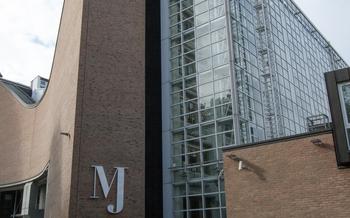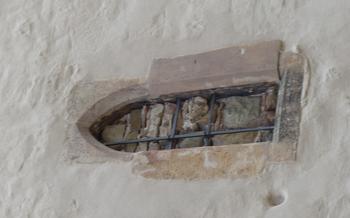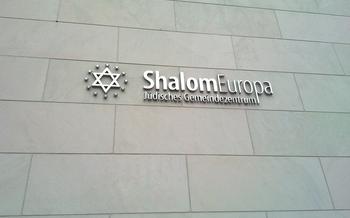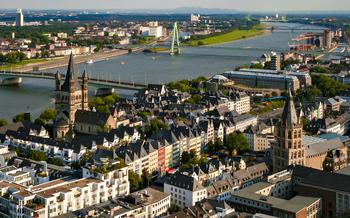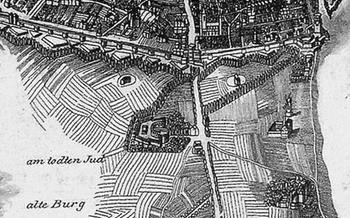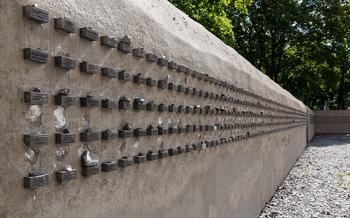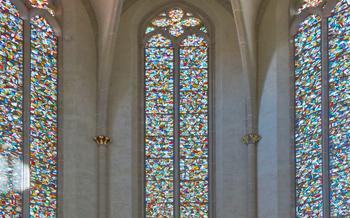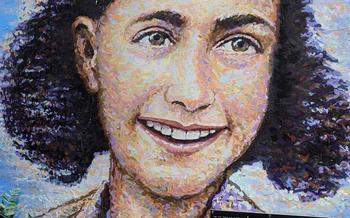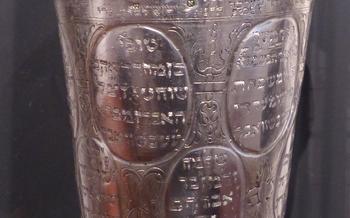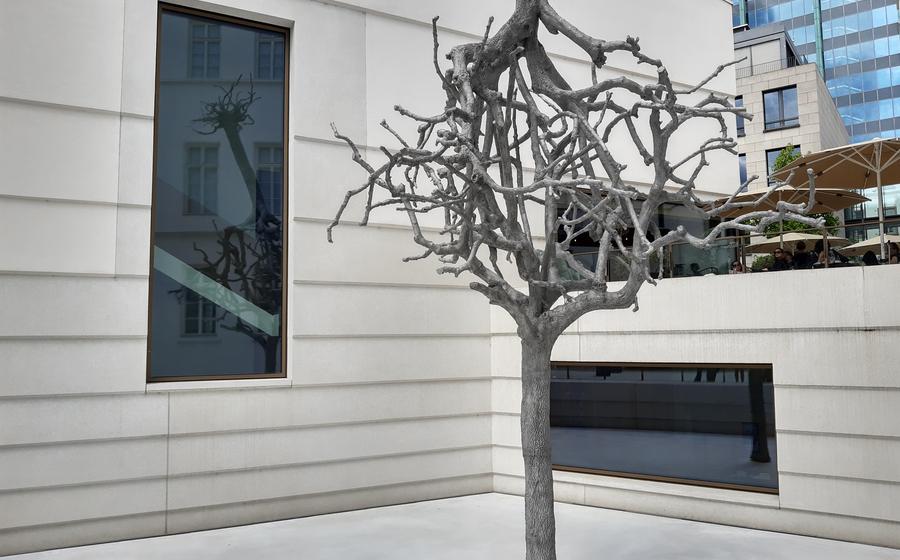
Jewish Museum Frankfurt
- The History of the Jewish Museum Frankfurt
- The Rothschild Palace
- Practical Information
- Temporary Exhibitions
- The Education Center
- The Library and Archives
- The Café
- The Museum Shop
- The Synagogue
- The Jewish Cemetery
- The Jewish Quarter
- Insider Tip
The History of the Jewish Museum Frankfurt
Founded in 1988, the Jewish Museum Frankfurt is housed in the former Rothschild Palace, a magnificent building that once belonged to the Rothschild family, a prominent Jewish banking dynasty. The museum's mission is to document, preserve, and present the history and culture of Jews in Frankfurt and the surrounding region. Through its collection of artifacts, documents, and multimedia presentations, the museum explores the rich and complex history of Jewish life in Frankfurt, from the Middle Ages to the present day.
The museum also plays a vital role in promoting understanding and tolerance between different cultures and religions. By shedding light on the experiences and contributions of the Jewish community, the museum helps to foster dialogue and break down barriers of prejudice and discrimination. Despite the challenges faced by the Jewish community throughout history, the museum stands as a testament to their resilience, strength, and determination to preserve their cultural heritage.
The Rothschild Palace
The Rothschild Palace is an architectural masterpiece that houses the Jewish Museum Frankfurt. Built in the 1820s for the Rothschild family, one of the wealthiest and most influential Jewish families in Europe, the palace is a testament to the family's opulence and power. The Rothschilds were known for their banking prowess and their philanthropy, and their palace reflected their refined taste and appreciation for the arts.
After the Rothschild family was forced to flee Germany during the Nazi regime, the palace was seized by the Nazis and used as a military headquarters. After the war, the palace was returned to the Rothschild family, who donated it to the city of Frankfurt. In the 1980s, the palace was converted into a museum dedicated to preserving and presenting the history and culture of the Jewish community in Frankfurt and the surrounding region.
Today, the Rothschild Palace is a protected historical monument and a symbol of the Jewish community's contributions to Frankfurt's history and culture. The palace's grand exterior and elegant interior provide a fitting setting for the museum's exhibitions and programs, which explore the rich heritage of Jewish life in Frankfurt.
Practical Information
- Address: Untermainkai 14, 60311 Frankfurt am Main
- Opening hours: Tuesday to Sunday, 10 am to 5 pm
- Admission fees: Adults €10, concessions €8, families €20
- Guided tours are available in English and German.
Temporary Exhibitions
The Jewish Museum Frankfurt regularly presents temporary exhibitions that delve into specific aspects of Jewish history, culture, and contemporary issues. These exhibitions offer visitors an opportunity to explore a wide range of topics, from the history of Jewish immigration to Germany to the challenges facing Jewish communities today.
Temporary exhibitions are an important part of the museum's mission to keep its content fresh and relevant. They allow the museum to address current events and issues, and to present new perspectives on Jewish history and culture.
The museum collaborates with other institutions, scholars, and artists to develop and present temporary exhibitions. This ensures that the exhibitions are of the highest quality and that they offer visitors a variety of perspectives on Jewish life and history.
Practical Information:
- Temporary exhibitions are typically on display for several months.
- Admission to temporary exhibitions is included in the museum's regular admission fee.
- Guided tours of temporary exhibitions are available upon request.
- A list of current and upcoming temporary exhibitions can be found on the museum's website.
The Education Center
The Jewish Museum Frankfurt's education center plays a crucial role in promoting understanding and tolerance through education about Jewish history and culture. The center offers a diverse range of programs for students, teachers, and the general public, designed to engage and inform visitors of all ages.
One of the center's primary goals is to foster dialogue and critical thinking about Jewish history and culture. Through workshops, lectures, and guided tours, participants are encouraged to explore complex issues, challenge stereotypes, and gain a deeper understanding of the Jewish experience. The center also organizes special events, such as film screenings, concerts, and panel discussions, to further promote cultural exchange and mutual understanding.
The education center's programs are meticulously developed by a team of experienced educators and scholars, ensuring that they are both informative and engaging. Teachers and students can benefit from tailored educational programs that align with their curriculum and learning objectives. The center also offers resources and support for educators, including lesson plans, teaching materials, and professional development opportunities.
By providing a platform for learning, dialogue, and critical reflection, the Jewish Museum Frankfurt's education center actively contributes to the museum's mission of promoting understanding and tolerance between different cultures and religions. It is a valuable resource for anyone seeking to deepen their knowledge of Jewish history and culture, and to challenge their own perspectives on diversity and inclusion.
The Library and Archives
The Jewish Museum Frankfurt also houses a comprehensive library and archive, which are open to the public. The library's collection includes over 50,000 books, journals, and manuscripts, while the archives hold a wealth of documents, photographs, and other materials related to Jewish history and culture. These resources are invaluable to researchers and scholars, and they are also accessible to the general public. The library and archives staff are on hand to assist visitors with their research, and they can also provide guidance on how to access the collections.
The library's collection is particularly strong in the areas of Jewish history, religion, and culture. It also includes a significant number of rare books and manuscripts, some of which date back to the Middle Ages. The archives contain a wide variety of materials, including personal papers, family records, and community records. These materials provide a rich source of information for researchers interested in learning more about the history of the Jewish community in Frankfurt and the surrounding region.
Practical information for visitors: - The library and archives are open Monday through Friday from 10am to 5pm. - Admission is free of charge. - Visitors must present a valid ID card or passport to enter the library and archives. - The library and archives are located in the Rothschild Palace, on the ground floor. - Visitors can access the library and archives through the museum's main entrance.
The Café
The Jewish Museum Frankfurt's café is a must-visit for anyone looking for a delicious and authentic Jewish culinary experience. The café serves a variety of traditional Jewish dishes, such as matzo ball soup, knishes, and challah bread, as well as a selection of salads, sandwiches, and desserts. The café also offers a wide range of kosher wines and beers, making it the perfect place to relax and enjoy a meal with friends or family.
The café is located on the ground floor of the museum and is open from Tuesday to Sunday from 10am to 5pm. Reservations are not required, but are recommended for groups of more than six people. The café also offers a take-away service, so you can enjoy your meal on the go.
Whether you're looking for a quick bite to eat or a leisurely meal, the Jewish Museum Frankfurt's café is the perfect place to satisfy your cravings. With its delicious food, friendly service, and relaxed atmosphere, the café is a great place to learn more about Jewish culture and heritage.
The Museum Shop
Situated at the heart of the Jewish Museum Frankfurt, the shop offers a unique blend of merchandise and souvenirs that resonate with the museum's profound mission of preserving and promoting Jewish history and culture. Step into this treasure trove, and you will be greeted with a carefully curated selection of books, DVDs, jewelry, Judaica, and various gift items that embody the rich tapestry of Jewish traditions and heritage.
The shop's primary goal is to support the museum's educational and cultural initiatives, ensuring that the stories and experiences of the Jewish community continue to be shared and celebrated. Every purchase made here contributes directly to the museum's ongoing endeavors to foster understanding, tolerance, and respect among diverse communities.
As you browse through the shelves, you'll discover an impressive collection of books, ranging from historical accounts and memoirs to contemporary fiction and non-fiction works that delve into the complexities of Jewish identity, culture, and history. These books provide an invaluable opportunity to gain deeper insights into the lives, struggles, and triumphs of the Jewish people.
If you seek visual representations of Jewish culture, the shop offers a captivating array of DVDs featuring documentaries, short films, and feature-length movies that explore various aspects of Jewish life, history, and experiences. These films serve as powerful mediums for storytelling, allowing viewers to connect with the past and present realities of the Jewish community.
For those seeking meaningful and unique keepsakes, the shop presents an exquisite selection of jewelry, including necklaces, bracelets, and earrings adorned with Jewish symbols and motifs. These pieces not only serve as stylish accessories but also carry deep cultural significance, allowing wearers to express their connection to Jewish heritage.
Furthermore, the shop features a diverse range of Judaica items, such as menorahs, mezuzahs, and Kiddush cups. These ritual objects, meticulously crafted with intricate designs and symbolism, hold immense religious and cultural value for the Jewish community.
With its carefully curated selection of books, DVDs, jewelry, Judaica, and gift items, the museum shop invites visitors to immerse themselves in the vibrant world of Jewish culture and history. Every purchase made here not only enriches the visitor's personal collection but also contributes to the preservation and promotion of a remarkable heritage that continues to inspire and shape our understanding of the human experience.
The Synagogue
The synagogue, located adjacent to the Jewish Museum, stands as a testament to the resilience and renewal of the Jewish community in Frankfurt. Built in the 19th century, it miraculously survived the destruction of Kristallnacht and the devastation of World War II. Today, it remains an active house of worship, hosting regular services and serving as a vibrant symbol of the community's enduring presence in the city.
Visitors to the synagogue are struck by its beautiful architecture, which blends traditional Jewish motifs with contemporary design elements. The interior is adorned with intricate stained-glass windows, ornate chandeliers, and a magnificent Torah ark. The synagogue's sanctuary provides a serene and spiritual space for prayer and reflection, fostering a deep connection to Jewish heritage and tradition.
Beyond its religious significance, the synagogue holds immense historical value. It represents the resilience of the Jewish community in the face of adversity, having endured centuries of persecution and discrimination. Its survival through the darkest chapters of history stands as a poignant reminder of the indomitable spirit of the Jewish people.
For those seeking a deeper understanding of Jewish culture and history, guided tours of the synagogue are available. Knowledgeable guides provide insights into the synagogue's architecture, its role in the Jewish community, and its significance in the context of Frankfurt's Jewish heritage. Visitors are encouraged to explore the synagogue's unique features, such as its mikveh (ritual bath) and its collection of historic artifacts.
Visiting the synagogue offers a profound experience that transcends religious boundaries. It is a place where history, spirituality, and community converge, inviting visitors to reflect on the enduring strength and resilience of the Jewish people.
The Jewish Cemetery
The Jewish Cemetery in Frankfurt is a haunting and moving place, containing the graves of thousands of Jews who have lived in the city over the centuries. The cemetery dates back to the 13th century, and is one of the oldest Jewish cemeteries in Europe. It was enlarged several times over the centuries, and today contains over 12,000 graves.
The cemetery is a protected historical site, and is an important part of the Jewish community in Frankfurt. It is a place where visitors can come to remember the victims of the Holocaust, and to learn about the history of the Jewish community in the city.
One of the most famous graves in the cemetery is that of Anne Frank, the young Jewish girl who died in the Bergen-Belsen concentration camp during the Holocaust. Anne Frank's grave is a popular pilgrimage site for visitors from all over the world, who come to pay their respects to a young woman whose life was cut short by hatred and intolerance.
The Jewish Cemetery is a place of peace and reflection, and is a must-visit for anyone who is interested in the history of the Jewish community in Frankfurt. It is a reminder of the suffering that Jews have endured throughout history, but it is also a symbol of their resilience and hope.
The Jewish Quarter
The Jewish quarter, located near the museum, is a vibrant and historic neighborhood that has been home to a thriving Jewish community for centuries. The quarter is home to a number of synagogues, restaurants, and shops, and is a great place to learn about Jewish history and culture in Frankfurt.
The Jewish quarter dates back to the Middle Ages, when Jews were forced to live in segregated areas of the city. Despite these restrictions, the Jewish community flourished in Frankfurt, and the quarter became a center of Jewish life and culture. In the 19th century, the Jewish community in Frankfurt was emancipated, and many Jews moved out of the quarter to other parts of the city. However, the quarter remained an important center of Jewish life, and many Jewish institutions, such as the Jewish Museum Frankfurt, are still located there today.
Visitors to the Jewish quarter can explore the neighborhood's many synagogues, restaurants, and shops. The quarter is also home to a number of historical sites, such as the Old Jewish Cemetery and the Anne Frank House. The Old Jewish Cemetery is one of the oldest Jewish cemeteries in Europe, and contains the graves of many prominent Jews, including the Rothschild family. The Anne Frank House is dedicated to the life and work of Anne Frank, a young Jewish girl who died in the Holocaust. The house is a museum and a memorial to Anne Frank and the victims of the Holocaust.
Insider Tip
For an authentic Jewish dining experience, try Hummus & Friends, a cozy restaurant in the Jewish quarter that serves delicious Middle Eastern cuisine. For a sweet treat, head to Café Einstein, a popular spot for coffee and pastries. If you're looking for a unique souvenir, visit The Judaica Shop, which sells a wide range of Jewish-themed gifts and artifacts.
To delve deeper into the history of the Jewish community in Frankfurt, consider taking a guided tour with Frankfurt on Foot. Their knowledgeable guides will take you to hidden gems and share fascinating stories about the city's Jewish past.
To avoid the crowds, plan your visit to the museum for a weekday morning or early afternoon. This will give you plenty of time to explore the exhibits at your own pace and avoid the rush of tourists.
Finally, remember to be respectful of the museum's exhibits and the Jewish community's history and culture. The museum is a place of remembrance and reflection, so please be mindful of your behavior and avoid making any disrespectful comments or gestures.
